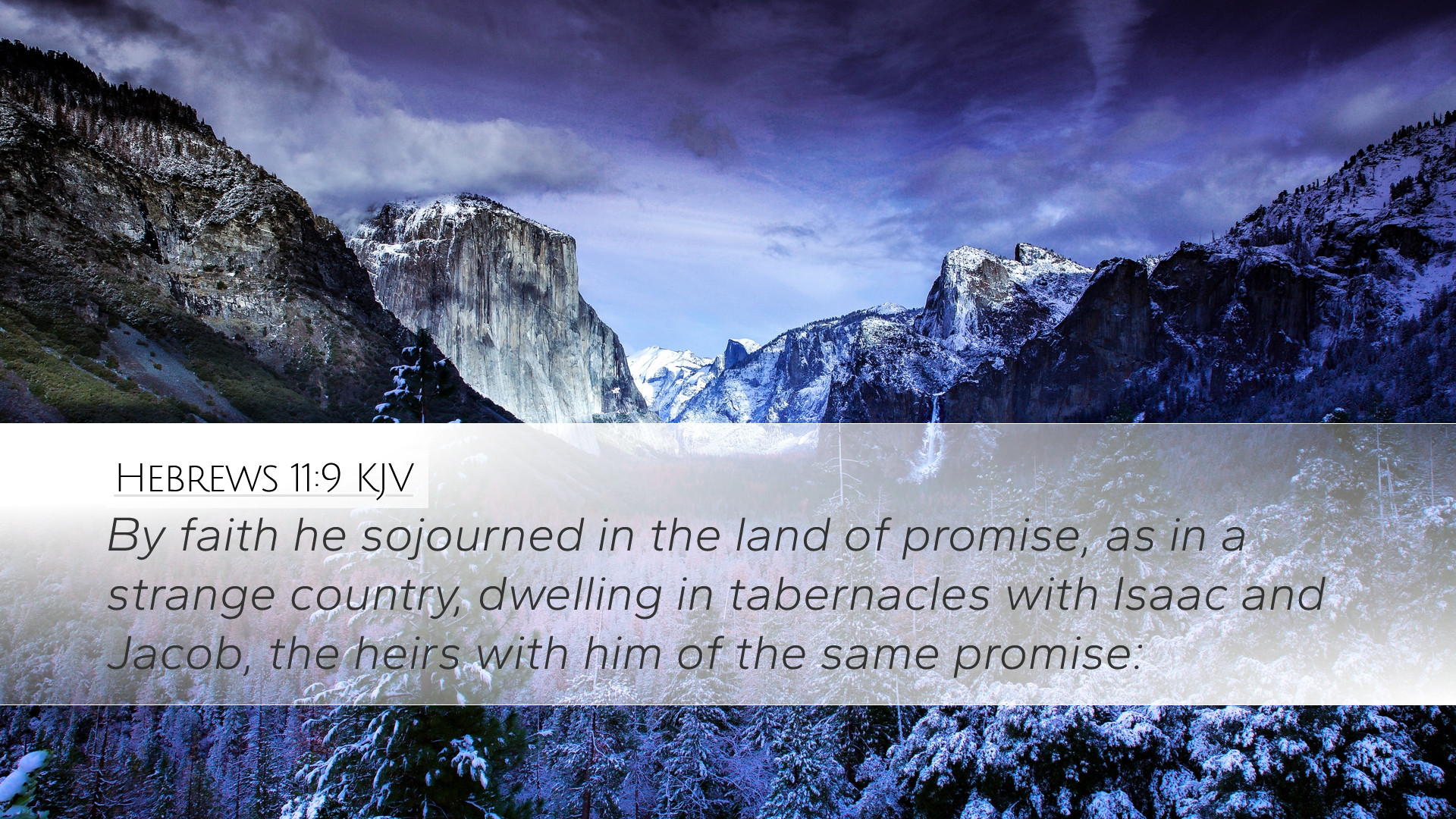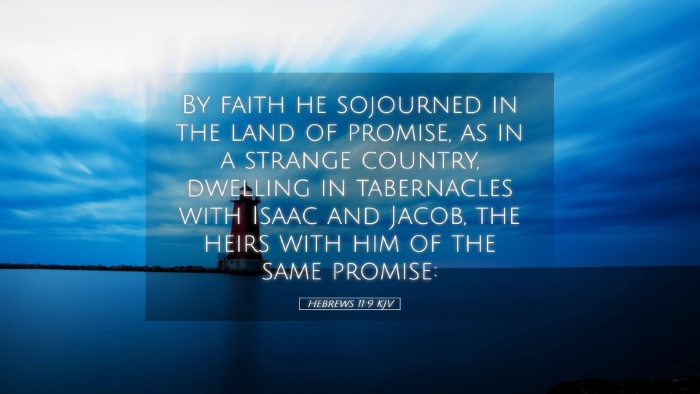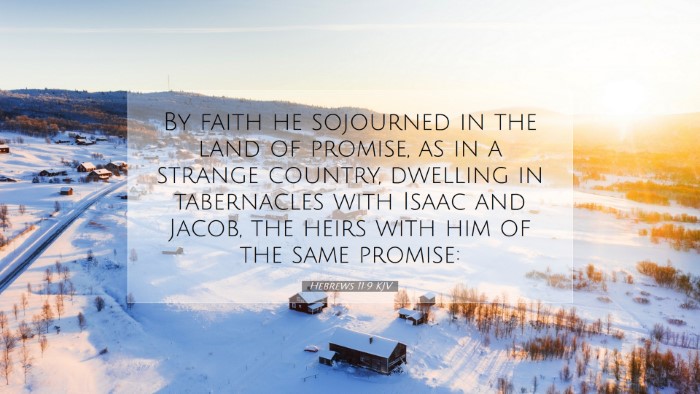Commentary on Hebrews 11:9
Hebrews 11:9 states: By faith he sojourned in the land of promise, as in a strange country, dwelling in tents with Isaac and Jacob, the heirs with him of the same promise.
This verse highlights the faith of Abraham, underscoring several key theological themes that hold profound significance for pastors, students, and scholars alike.
Understanding the Context
The Book of Hebrews is written to a predominantly Jewish audience familiar with the Old Testament, aiming to demonstrate the superiority of Christ and the New Covenant. Hebrews 11, often referred to as the "Faith Chapter", provides examples of faith in the lives of the patriarchs, particularly focusing on Abraham as a model of faith and obedience.
Faith and Sojourning
The verse begins with “By faith”, establishing the foundation of Abraham's actions. Abraham's faith was not passive; it was active and dynamic, propelling him into a life of pilgrimage. Matthew Henry notes that Abraham “left his father's house, to wander in a strange land,” indicating a physical and spiritual journey motivated by divine call. This indicates a deep trust in God, who promised him the land even before he possessed it.
Abraham’s Identity as a Sojourner
Abraham’s life exemplifies the idea of being a sojourner or stranger on earth, reflecting the broader Christian experience of living as pilgrims. Albert Barnes comments on the significance of dwelling in tents, highlighting that tents symbolize transience and the temporary nature of earthly existence. This living arrangement depicts Abraham's detachment from worldly possessions, reminding readers that their true home is not of this world.
The Land of Promise
Abraham journeyed to the land of promise, representing not merely physical territory but a space imbued with God's covenantal assurance. Adam Clarke emphasizes that Abraham’s "sojourning in the land of promise" was a manifestation of his faith in God's promise, highlighting the tension between the present reality and the future hope of fulfillment. The land stood as a testament to the covenant made with God, reflecting the broader theological idea of spiritual inheritance.
Community of Faith
The verse also mentions Isaac and Jacob, Abraham's immediate heirs, who walked in his footsteps of faith. Matthew Henry remarks that Abraham's faith was familial, extending its influence to his descendants. The representation of these patriarchs signifies that faith is multi-generational; it connects believers across generations, building a legacy of trust in God's promises.
Lessons on Faith
This verse provides several profound lessons on faith that resonate with contemporary readers:
- Faith requires obedience: Like Abraham, believers are called to step out in faith, even when the destination is unknown.
- Faith understands temporality: The tent symbolizes that believers are not to anchor themselves to this world but look toward the eternal, just as Abraham did.
- Faith has communal dimensions: The presence of Isaac and Jacob serves as a reminder to foster and pass on faith within families and communities.
Theological Implications
The discussion of faith in Hebrews 11:9 invites deeper theological reflection:
- Covenant Theology: This verse underscores God's covenant with Abraham and his descendants, pointing to God's faithfulness through generations.
- Faith as Assurance: Abraham's faith was assured not by sight but by the promise, illustrating the essence of faith as belief in the unseen (Hebrews 11:1).
- The Pilgrim Identity: Believers are reminded that their identity lies in being citizens of heaven, as reflected in Abraham's life—a paradigm of faith-filled sojourning.
Conclusion
Hebrews 11:9 encapsulates essential characteristics of genuine faith—obedience, anticipation, and community. Abraham stands as a paramount figure whose faith journey reflects a divine promise that extends beyond his lifetime. This passage calls modern believers to adopt a similar posture of faith, urging them to recognize the temporary nature of earthly existence while holding firmly to the heavenly promise.


